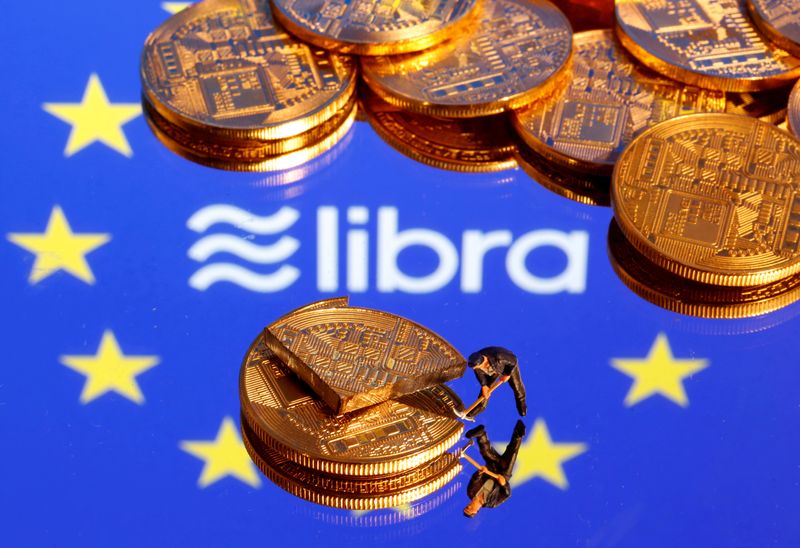By Huw Jones
LONDON (Reuters) - The European Union will introduce new rules within four years to make cross-border payments quicker and cheaper through the use of blockchain and crypto assets like stablecoins, two EU documents showed.
The European Commission is due to set out its strategy for encouraging greater use of digital finance at a time when 78% of payments in the euro zone are in cash. It also wants a rapid shift to "instant" payments generally as pandemic lockdowns showed the growing role of cashless payments.
The EU executive will present a draft law to clarify how existing rules apply to crypto assets and set out new rules where there are gaps, the documents said.
"By 2024, the EU should put in place a comprehensive framework enabling the uptake of distributed ledger technology (DLT) and crypto-assets in the financial sector," the documents said. "It should also address the risks associated with these technologies."
Stablecoins, a type of cryptocurrency often backed by traditional assets, leapt onto policymakers' agendas last year when Facebook (NASDAQ:FB) revealed plans for its Libra token. Central banks are now studying whether to launch their own.
Brussels also wants to make it easier to share data within the financial sector to encourage competition and a wider range of services, while upholding the principle of "same risk, same rules, same regulation", the documents say.
The bloc should also have rules in place within four years to allow new customers to start using financial services quickly once anti-money laundering and identity checks have been completed, it said.
"By 2024, the principle of passporting and a one-stop shop licensing should apply in all areas which hold strong potential for digital finance," it said. Instant payment systems should become the "new normal" by the end of 2021.
Instant payments are suitable for many uses beyond traditional credit transfers, in particular for physical and online purchases, which are currently dominated by payment card schemes, the documents said.
Europe has long sought "home grown" alternatives to the likes of MasterCard and Visa (NYSE:V), the U.S. payments firms heavily used in the region.

The Commission will assess the impact of charges levied on consumers for instant payments and to could require that they are no higher than those for regular credit transfers.